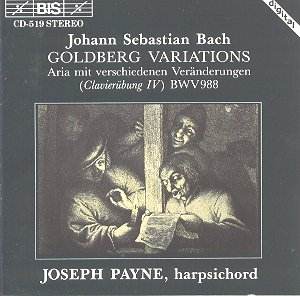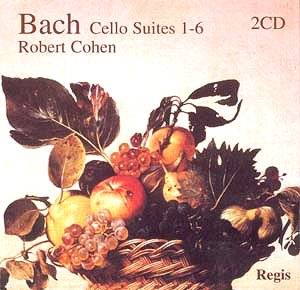 CD Title: Goldberg Variations, BWV 988
CD Title: Goldberg Variations, BWV 988
Composer: Johann Sebastian Bach
Performer: Joseph Payne (harpsichord)
Record Label and Catalog Number: BIS-CD-519
Review Focus:
Analyzes Payne’s technically proficient performance on the harpsichord, aiming for Baroque authenticity.
Discusses the balance between technical precision and emotional depth in Payne’s interpretation, noting a tendency towards detachment at times.
Mentions the recording quality’s impact on the overall listening experience.
Concludes that despite some shortcomings, the recording remains valuable for Bach enthusiasts.
Bach’s \”Goldberg Variations\” nestles within the genre of art music as a distinguished masterpiece. This composition, entrusted to the nimble fingers of harpsichordist Joseph Payne in late 1990, is given a fresh voice in this recording by BIS-CD-519.
Payne’s rendition attempts to trace back to the original Baroque aesthetics with the use of a harpsichord, thus creating a more authentic aura around Bach’s ingenious composition. His technique is commendable, as the task of performing the Goldberg Variations is not one to be taken lightly. The collection of 30 variations holds substantial technical demand and calls for the performer’s own artistic interpretation, given Bach’s minimal instruction on ornamentation and articulation.
Payne presents each variation as a unique world in itself, shifting key, rhythm, and style with commendable adaptability. There are moments of profound contemplation, playful jaunts, and fast-paced flurries that take listeners through an array of emotions.
However, it is here that a hint of uneasiness comes into play. At times, Payne’s playing leans towards a sense of detachment, bordering on mechanical execution at the expense of the warm emotive core the variations ideally encompass. This suggests an overwhelmed immersion in technical precision which slightly overpowers the emotional content.
Additionally, the recording quality, albeit clear, tends to be on the thin side, stripping away some of the instrument’s rich resonance and possibly washing out the delicate dynamics of the variations.
That said, Payne’s interpretation of the Goldberg Variations still offers plenty for listeners to appreciate. It’s an earnest attempt to encapsulate Bach’s full breadth of brilliance, and despite the occasional detours into sterility, it’s evident that Payne’s allegiance to Bach’s intentions is firmly rooted. In sum, this recording, while having a few noticeable shortcomings, still makes for a worthy addition to any Bach enthusiast’s collection.



